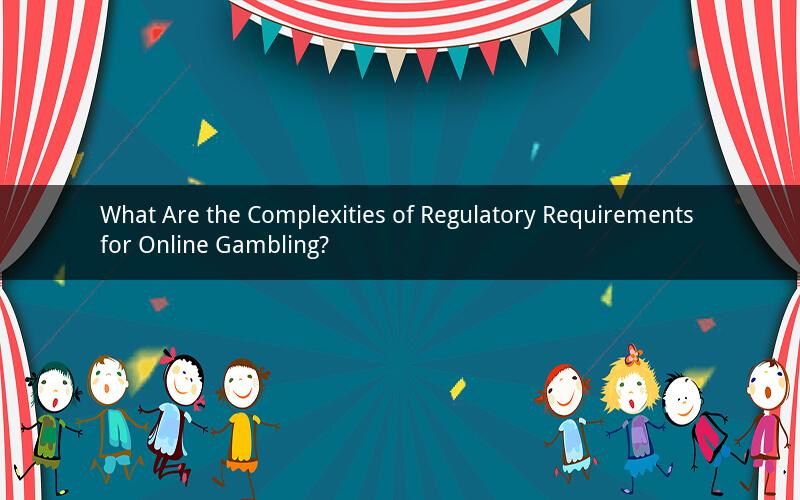
Table of Contents
1. Introduction to Online Gambling
2. The Evolution of Online Gambling Regulations
3. Key Challenges in Implementing Online Gambling Regulations
- Technological Hurdles
- Ensuring Fair Play
- Combating Fraud and Money Laundering
4. The Role of International Organizations in Online Gambling Regulation
5. Case Studies: Success Stories and Setbacks
- The United Kingdom's Regulatory Approach
- The United States' Struggle with Online Gambling
6. The Impact of Regulatory Requirements on Consumers
7. The Future of Online Gambling Regulations
8. Conclusion
---
1. Introduction to Online Gambling
In the digital age, the world of gambling has transformed. Online gambling has become a multi-billion-dollar industry, attracting millions of players worldwide. However, with this surge in popularity comes a pressing need for robust regulatory frameworks to ensure the safety, fairness, and legality of these online platforms. But what exactly are the complexities involved in implementing these regulatory requirements for online gambling?
2. The Evolution of Online Gambling Regulations
The history of online gambling regulations is a testament to the rapid technological advancements and shifting societal attitudes towards gambling. From the early days of the internet, when online casinos were just beginning to emerge, to the current era of sophisticated regulatory frameworks, the industry has undergone significant changes.
In the 1990s, online gambling was largely unregulated, with operators setting their own rules and standards. However, as the industry grew, so did concerns about player protection, fraud, and money laundering. This led to the establishment of various regulatory bodies, such as the Kahnawake Gaming Commission in Canada and the Malta Gaming Authority, which set the precedent for modern online gambling regulations.
3. Key Challenges in Implementing Online Gambling Regulations
3.1 Technological Hurdles
One of the most significant challenges in regulating online gambling is keeping pace with the rapid technological advancements. Operators must ensure that their platforms are secure, reliable, and capable of handling the high volume of players. This requires constant updates and improvements to their software and infrastructure.
3.2 Ensuring Fair Play
Ensuring fair play is another critical aspect of online gambling regulation. Regulators must monitor and audit the games to ensure that they are not rigged or manipulated. This involves sophisticated algorithms and rigorous testing procedures to detect any irregularities.
3.3 Combating Fraud and Money Laundering
Fraud and money laundering are significant concerns in the online gambling industry. Regulators must implement strict Know Your Customer (KYC) policies and monitor transactions to prevent illegal activities. This requires collaboration with financial institutions and law enforcement agencies.
4. The Role of International Organizations in Online Gambling Regulation
International organizations play a crucial role in shaping the global regulatory landscape for online gambling. Organizations such as the International Lottery and Gaming Association (ILGA) and the European Gaming and Betting Association (EGBA) provide a platform for operators and regulators to discuss and collaborate on common challenges.
5. Case Studies: Success Stories and Setbacks
5.1 The United Kingdom's Regulatory Approach
The United Kingdom has been a leader in online gambling regulation, establishing the UK Gambling Commission (UKGC) to oversee the industry. The UKGC has implemented strict licensing requirements and monitoring procedures, making the UK one of the most reputable markets for online gambling.
5.2 The United States' Struggle with Online Gambling
The United States has faced significant challenges in regulating online gambling. The Unlawful Internet Gambling Enforcement Act (UIGEA) of 2006 effectively banned online gambling transactions, leading to a fragmented and unregulated market. However, recent developments, such as the legalization of online gambling in states like New Jersey and Pennsylvania, indicate a potential shift in policy.
---
6. The Impact of Regulatory Requirements on Consumers
Robust regulatory requirements have a positive impact on consumers by ensuring a safe, fair, and transparent gambling environment. Players can rest assured that their personal and financial information is protected, and that the games they play are not rigged.
7. The Future of Online Gambling Regulations
The future of online gambling regulations looks promising, with an increasing number of countries adopting comprehensive frameworks. The key to success will be striking a balance between innovation and regulation, ensuring that the industry continues to thrive while protecting players and society.
---
8. Conclusion
The complexities of regulatory requirements for online gambling are multifaceted, encompassing technological challenges, ensuring fair play, and combating fraud. While there have been successes and setbacks, the industry is moving towards a more regulated and responsible future. As players and operators alike adapt to these evolving regulations, the online gambling landscape will continue to evolve, offering a safer and more enjoyable experience for all.
---
Questions and Answers
1. Q: How do regulatory requirements differ between countries regarding online gambling?
A: Regulatory requirements vary significantly between countries, influenced by cultural attitudes, legal frameworks, and technological capabilities. Some countries have strict licensing and monitoring procedures, while others have a more lenient approach.
2. Q: What are the main concerns of regulators when it comes to online gambling?
A: The main concerns include player protection, fair play, fraud prevention, and money laundering. Regulators aim to ensure that players are not exploited and that the industry operates within legal boundaries.
3. Q: How do online gambling operators comply with regulatory requirements?
A: Operators comply with regulatory requirements by obtaining licenses, implementing robust security measures, conducting regular audits, and adhering to strict KYC policies. They also invest in advanced technology to ensure fair play and prevent fraud.
4. Q: What impact do regulatory requirements have on the consumer experience?
A: Regulatory requirements have a positive impact on the consumer experience by ensuring a safe, fair, and transparent gambling environment. Players can trust that their personal and financial information is protected, and that the games they play are not rigged.
5. Q: How can online gambling regulations evolve to keep pace with technological advancements?
A: Online gambling regulations can evolve by incorporating emerging technologies, such as blockchain and artificial intelligence, to enhance security and fairness. Regulators must also collaborate with international organizations to share best practices and address global challenges.